CAHSI Board of Advisors Bios

David Asai
David Asai is Senior Director for Science Education at the Howard Hughes Medical Institute. His work is guided by three principles: (1) the dynamic demographics of the U.S. population presents a historical opportunity and compelling challenge for U.S. science; (2) all students—regardless of where they come from and where they’re going—deserve a meaningful, effective, and positive experience in science through which they will better understand the process of science; and (3) making that experience meaningful, effective, and positive is the responsibility of the faculty and administrators who define the institution’s culture.
David’s team at HHMI creates and leads grants and fellowships programs aimed at the development of students in science mainly at the undergraduate and graduate levels. Key programs include the Inclusive Excellence initiative, the Gilliam graduate fellowships initiative, the HHMI Professors initiative, and the Science Education Alliance.
David’s bachelor’s degree is in chemistry from Stanford University, and his Ph.D. is in biology from Caltech. He was: a postdoc at Caltech and the University of California, Santa Barbara; a faculty member at Purdue University for 18.5 years where he was Head of Biological Sciences; and Stuart Mudd Professor and Chair of Biology at Harvey Mudd College for 5 years. His research focused on the structural and functional diversity of dyneins. Successful “Asailum” escapees include 11 PhDs and 77 undergraduate students. David came to HHMI in 2008.
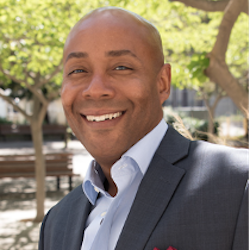
Tony Baylis
Tony Baylis is the senior management advocate for diversity and inclusion for the Lawrence Livermore National Laboratory. Tony is responsible for overseeing the laboratory’s interactions and successful execution in building and collaborating with academic, community, governmental, and industry stakeholders. Tony’s career represents 33 years of administrative, project, program, technical, and organizational management. He has worked in a scientific and technical environment for over 28 years. He represents the Laboratory on the subjects of Diversity and Inclusion, STEM, Outreach Efforts, and Student Programs.
Tony has a long history in working and building programs that impact underserved communities, Minority Serving Institutions, specific relationships with American Indian Institutions, Hispanic Serving Institutions, and Historically Black Colleges and Universities. He serves as a Department of Energy Minorities in Energy Champion, a Board Member for the EmpowHer Institute, an NSF reviewer, and an Industry Advisory Board Member for the University of Florida Computer & Information Science & Engineering Department. He also serves as a conference program committee member and reviewer for the Grace Hopper Conference, Richard Tapia Diversity in Computing Conference, Supercomputing Conference, Women in Cybersecurity Conference, and NSF Cybersecurity Summit. Tony is an ACM and ACM SIGGRAPH member and currently serves SIGGRAPH in the role of Diversity and Inclusion Committee Chair. His passion is to serve others. He is honored to have had the opportunity to give advice and mentor many students and professionals throughout his career.
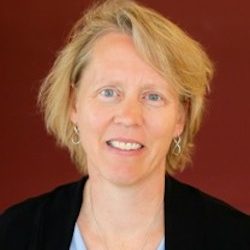
Tracy Camp
Tracy Camp is the Founding Department Head of Computer Science (CS) at Colorado School of Mines (Mines). She joined Mines in 1998, became a Full Professor in 2007, and launched the CS@Mines Department in 2016. Dr. Camp has led the diversity efforts in CS@Mines for years, strategically implementing activities and improvements that changed the demographics in her department significantly and led to a national award from the National Center for Women & Information Technology. Dr. Camp will retire from Mines in 2022 to become the Executive Director of the Computing Research Association (CRA), an organization she knows well having previously served on its board and as co-chair of CRA-WP.
Dr. Camp’s research interests are in the wireless networking area. She is most known for improving the credibility of wireless networking simulation studies. More than 4,000 researchers in 88 countries have downloaded at least one of the 12 software packages developed by her research group (as of June 2021) and her research articles have been cited 14,794 times (per Google Scholar, as of June 2021). Dr. Camp has received over 20 grants from the National Science Foundation, including a prestigious CAREER award. In total, her projects have received over $20 million dollars in external funding.
Dr. Camp is an ACM Fellow, an IEEE Fellow, and passionate about broadening participation in computing.
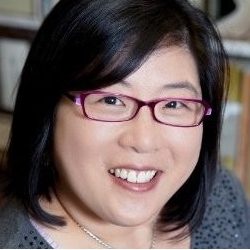
Ann Edwards
Ann Edwards is the Director of Learning and Teaching for the Carnegie Math Pathways, a network of faculty members, researchers, designers, students, and content experts committed to increasing student success in developmental mathematics and overall college and career outcomes. Edwards oversees the development and implementation of the Pathways instructional system, including the Statway and Quantway curricula, assessments, pedagogy, and the faculty development system.
Edwards came to WestEd from the Carnegie Foundation for the Advancement of Teaching, and, prior to that, from the University of Maryland, College Park, where she was a faculty member focusing on mathematics teaching, teacher learning, and professional development in the university’s college of education.
She brings a deep commitment to addressing issues of equity that shape mathematics teaching and learning at all levels. She has taught secondary and collegiate mathematics and worked with mathematics teachers K–16. She has published in numerous journals and books including the NADE Digest, Journal of Teacher Education, Journal for Research in Mathematics Education, Teachers College Record, and the Handbook of Research on Learning and Instruction.
Edwards received a BA in applied mathematics from Harvard University; and an MA and Ph.D. from the University of California, Berkeley in education in mathematics, science, and technology.
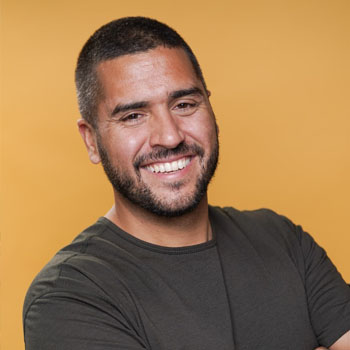
Joshua Guiterrez
Josh Gutierrez was born and raised in Barstow, California and currently lives in Los Angeles. He has had the privilege of living all across the country – from the Navajo reservation in New Mexico, to Boston, the Bay Area, Ann Arbor, Michigan – and now back in Los Angeles. Before joining the Netflix Emerging Talent team, he graduated from an HSI (CSU San Bernardino), taught middle school science on the Navajo Reservation, and in 2012, joined Teach For America where he began his recruitment career at MIT and Boston University. After that, he joined Google in 2014, where he maintained a focus on connecting students of color with professional opportunities. His work centers on students from underrepresented backgrounds and universities.
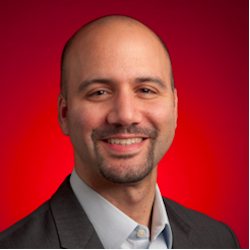
Sepi Moghadam
Dr. Sepi Hejazi Moghadam is Head of Special Projects, University Relations at Google. He incubates programs that improve the experience and outcomes for underrepresented students in computer science research pathways. His projects have focused on establishing a deeper understanding of underrepresented groups who choose computer science and the barriers preventing those that do not. He has developed programs and established partnerships that focus on the path from undergraduate, to graduate, to research careers for underrepresented students. He has a Ph.D. in Political Science and Education from Teachers College, Columbia University, and a Masters in Policy Analysis and Evaluation from Stanford University.
He is thrilled to join the CAHSI Board of Advisors because the Alliance shares the same level of commitment he has to empower Hispanic students to make important contributions to computer science research and to be the creators of tomorrow’s innovations that will benefit their communities and the world.
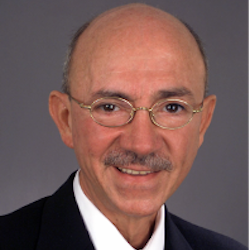
Carlos Rodriguez
STEM Senior Research Scientist, Carlos Rodriguez, Ph.D., is a nationally recognized expert with 35 years of experience in STEM research, evaluation, education, and workforce development. With expertise on diversity in STEM in the K-12, post-secondary, and workforce arenas, his seminal work has contributed importantly to the knowledge base on broadening participation in STEM education and workforce pathways, especially for Hispanic Americans, African Americans, Native Americans, and women.
Retired from the American Institutes for Research (AIR) as a Principal Research Scientist, currently, he provides consulting services on STEM education and workforce pathways to the American Petroleum Institute of Washington, DC, Great Minds in STEM of Los Angeles, California, and the United States Department of Defense through BEST (Building Engineering and Science Talent). He delivered prepared remarks on the Educational Landscape for Hispanics in the United States in 1999 for the First White House Conference on Hispanic Children and Youth at the White House in Washington, DC.
During his tenure at AIR, Dr. Rodriguez served as Project Director or Principal Investigator for evaluation studies of national programs for NSF & NASA ($120 million), HRSA & HHS ($10 million), NSF ($100 million), and the College Board ($36 million). Among his publications, for the Presidential Commission on Educational Excellence for Hispanic Americans, Dr. Rodriguez authored the national report, America on the Fault Line: Hispanic American Education (1997), for the National Science Foundation he authored Broadening Participation in STEM (2012). He is a Spencer Fellow of the Woodrow Wilson Foundation for his national study, Patterns for Success: Minorities in Science and Engineering.
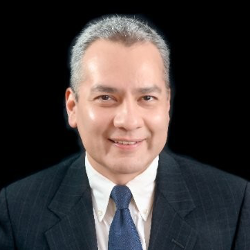
Luis Rodriguez
Luis is on the leadership team of the Siemens Industrial Edge Technology Unit. He is responsible for establishing the hyper-growth strategy and execution around Edge Computing, starting with high profile strategic partnerships, innovative IT/OT go to market motions and edge+IoT technology priorities.
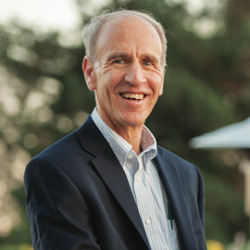
Robert Schnabel
Bobby Schnabel is Professor of Computer Science, external chair of the department (including strategic planning, the tech community and alumni relations, and faculty mentoring), College of Engineering and Applied Science Faculty Director for Entrepreneurship, and Campus Thought-Leader on Computing. Previously he was CEO of ACM (Association for Computing Machinery) from 2015-17, Dean of the School of Informatics and Computing at Indiana University from 2007-2015, and on the Computer Science faculty at the University of Colorado Boulder from 1977-2007. At CU Boulder he also was CS department chair from 1990-95, CEAS associate dean for academic affairs from 1995-97, founding director of the ATLAS Institute from 1997-2007, and vice provost for academic and campus computing and campus Chief Information Officer from 1998-2007. He is a co-founder of the National Center for Women & Information Technology and continues to serve on the NCWIT executive team.


